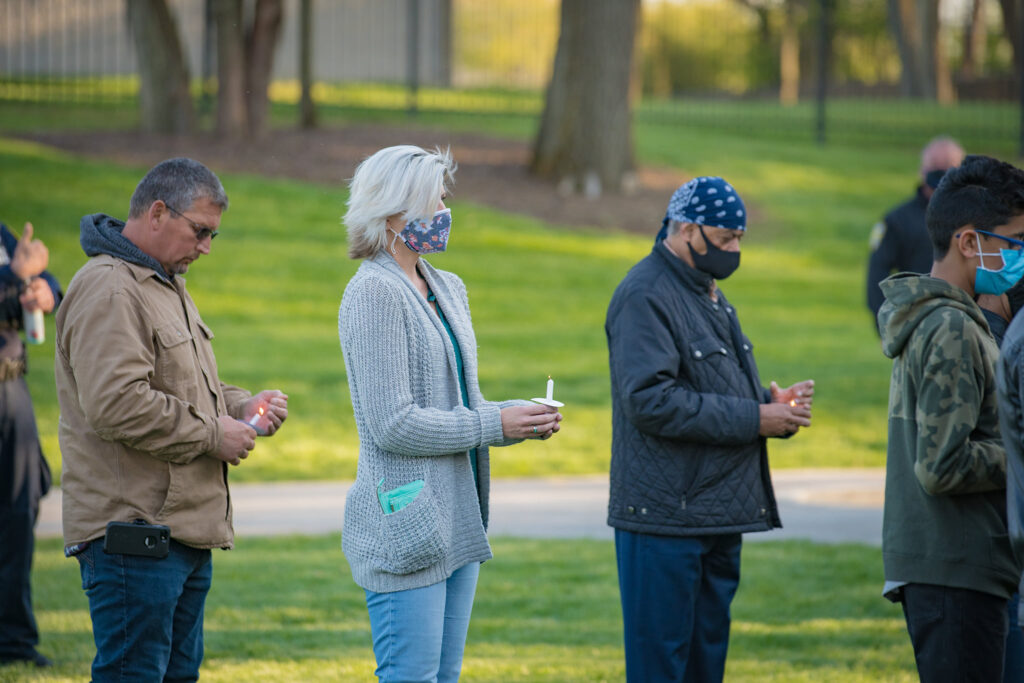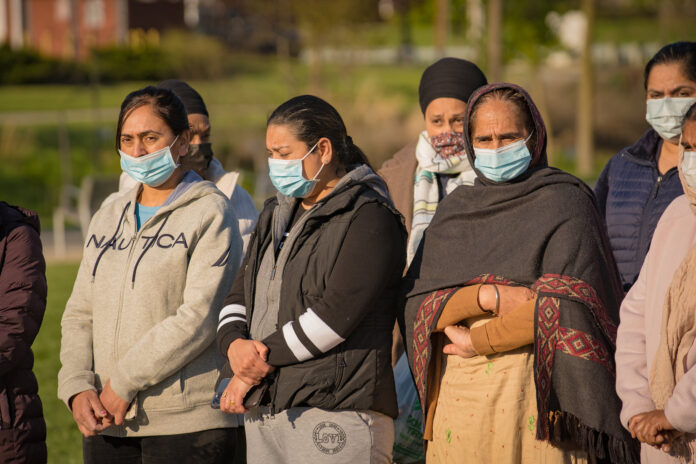By Shruti Rajkumar, AsAmNews Intern
Seven weeks after the Indianapolis shooting that killed eight people, four of whom were Sikh individuals, Sikh Americans refuse to forget and are finding ways to support each other-all while continuing to strive for justice by pushing the shooting investigation forward.
Indianapolis small business owner Harsimranjit Chhabra said that there has been a heightened sense of worry and caution among Sikh community members after the local shooting.
“As a community, a lot of people have been shaken up by how the incidents unfolded, [and] a sense of security was definitely compromised. My work, and where this happened at the FedEx facility, it’s only like 15 to 20 minutes away. Since I work in a lot of retail culture, it’s just very precautionary for us. You just never know how things can fall out, especially nowadays,” said Chhabra.
The Sikh community has long been the target of violence and attacks. Senior manager of policy and advocacy at the Sikh Coalition Nikki Singh points out how post-9/11, Sikhs have been targeted because of their articles of faith, such as their turbans. Even after the Indianapolis shooting, attacks that have killed Sikh individuals have continued to galvanize the community.
“We are time and time again facing senseless violence, whether that is targeted violence or not. It’s traumatic for the families in particular who faced this violence and also for the larger community. The more we, as a community, keep focused on helping one another heal after the tragedy, the better off that will be,” said Singh.
Co-founder of We Are Sikhs and National Sikh Campaign Gurwin Singh Ahuja said that a big issue is that most non-Sikhs don’t know who they are, and often confuse the community with other faith religions.
The Sikh community saw an outpouring of messages of solidarity from people all across the country after the Indianapolis shooting, however for some people, that may have been the first time they ever heard about the Sikh community, said Singh. She encourages others to reach out to the Sikh community, get to know them, and learn about their faith.
“Gurdwaras are open and welcoming to all, and so the more that we can do to continue to build those bridges and break down barriers, the less of an opportunity there is for any sort of hate or bias,” said Singh.

Chhabra believes that people know who Sikhs are a little bit more now than in previous years since there is a larger Sikh population in Indianapolis and around the country. However, he said that more can be done to increase recognition and educate others, such as through more Sikh involvement in politics. This, along with gun control, could prevent such violence and hate against Sikhs from continuing.
The collective trauma and impact of violence against the Sikh community is very real, said Singh, and within the organization, there has been a focus on mental health resources for the community. Currently, there is also a focus on getting updates regarding the investigation of the shooter’s motive.
According to a press release on the Sikh Coalition website, the FBI affirmed that they are conducting a thorough and meticulous investigation into the shooter’s motive for the attack that includes all bias motivating factors, among others.

“For us, really where the focus remains now is continuing to push authorities to conduct a full and transparent investigation of the shooting as a matter of justice for the lives that were lost. When the community feels targeted and traumatized, I think it’s really important to regularly be getting those updates, even though there’s an understanding that the investigation is still ongoing,” Singh said.
Since the motive was unknown, Singh Ahuja said that people didn’t want to jump ahead of that and make any clear cut claims. Chhabra, who personally doesn’t believe that the Indianapolis shooting was specifically targeted at the Sikh community, said he noticed that the media covered it in a way that focused on American lives being lost, rather than specifically Sikh lives.
Chhabra believes that the 2012 shooting at a Gurdwara in Oak Creek galvanized the Sikh community more than the Indianapolis shooting because the motive was very clear. Similarly, Singh Ahuja recalls a recent San Jose rail yard shooting in which nine people were killed. In this incident, Singh Ahuja said Taptejdeep Singh, a Sikh man, had left his hiding place to protect his co-workers, and that story resonated with the community very much.
“Sikhs wear turbans to reflect their commitment to equality and to protect equality for all people. The San Jose gentlemen truly reflected the mandate of what it means to be a Sikh. He had a turban on, so he visually represented it, and then he lived it until the last moment of his life. That has galvanized the community because it is very clear what all the factors were,” said Singh Ahuja.

With the rise in hate crimes and gun violence increasing exposure to Americans, Singh Ahuja said that incidents such as the Indianapolis shooting are seen as just another event of gun violence.
“[These shootings have] been following the pattern for more than a decade of ‘It happens, the media covers it, we learn about the victims, and then we move on.’ So do I think enough time is spent on these? Absolutely not. But it’s only because they happen with so much regularity that they’re almost not even big news events anymore,” said Singh Ahuja.
Although it would not absolve all of the problems that the Sikh community faces, Singh Ahuja said he wishes that there was even more of an increased awareness of who they are, which could be done through Sikh community leaders engaging with non-Sikh community leaders. In the past, he notes how politicians have come to Gurdwaras to speak, however that hasn’t been possible to do recently with the pandemic.
“I think any event whether something unfortunate like this or something positive is a moment to educate and inform. I feel like one of the best ways to do that is if our political leaders would be able to highlight the Sikh community in a big way when these issues happened, because it would illuminate amongst the broader population about who Sikhs are and where our place is within the American fabric,” said Ahuja Singh.
AsAmNews has Asian America in its heart. We’re an all-volunteer effort of dedicated staff and interns. Check out our new Instagram account. Go to our Twitter feed and Facebook page for more content. Please consider interning, joining our staff, or submitting a story or making a contribution.





